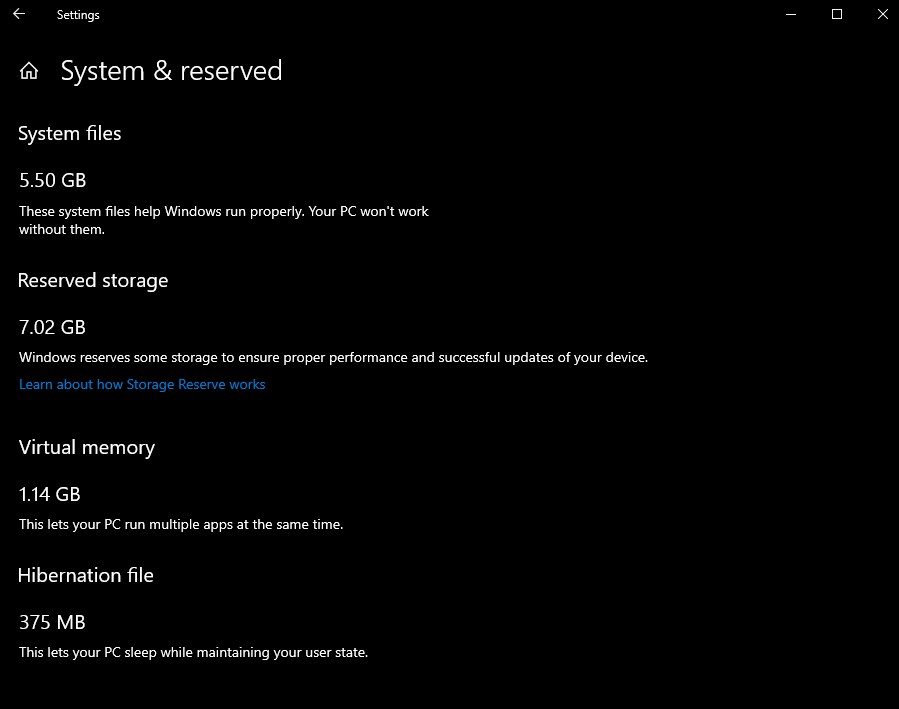Windows 10 will start reserving 7GB or more for updates
As an early warning to all Windows 10 users, Microsoft has pushed out a feature update notice that additional storage space will be reserved starting with build 1903. Anyone extremely low on disk space may want to free up storage before installing the next major release when it arrives this spring.
When the next major update to Windows 10 arrives, you may notice that a sizable portion of disk space has been eaten up. In fact, Microsoft will be allocating working space for updates, applications, temporary files, and caches to prevent problems from lack of available storage.
Remember all of the issues with the October 2018 Update and user files going missing? This change will ensure that no user files ever need to be relocated in order for updates to be installed.
Currently, when a user fills up all of their available disk space, Windows runs into a problem. Certain applications and services begin to fail in no particular order. Adding a storage reserve eliminates these issues and improves the overall stability of the platform.

When it is time to install updates, end users should no longer see their disk space used increase during the download process. In the event that that very large updates are pushed out that go beyond the already allocated space, the reserved amount can be increased. If there is no more space available, it will be possible to plug in external storage such as a USB drive or hard drive and continue as normal without deleting files from your local hard drive.
Storage Sense will attempt to keep a hold on the size of the reserved space by removing unneeded temporary files. Even though Microsoft is stating that the reserved portion will begin at 7GB in the next major release, it will vary over time. For the majority of users, losing a little bit of storage space will have no impact on performance, but will help avoid annoyances later down the road.













No comments: